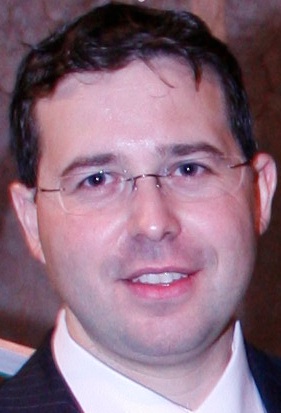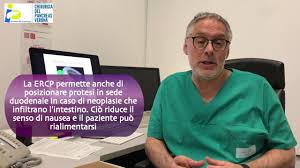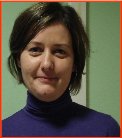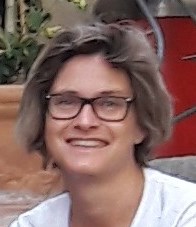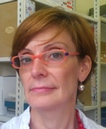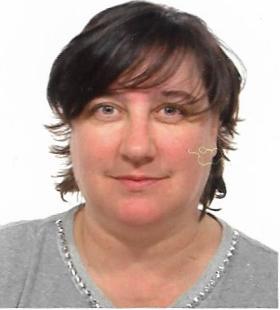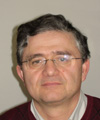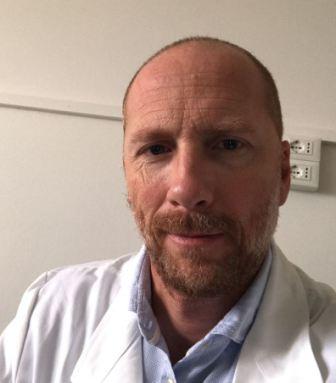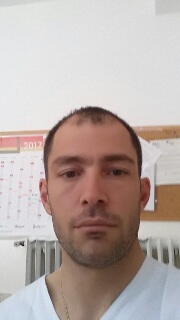Studying at the University of Verona
Here you can find information on the organisational aspects of the Programme, lecture timetables, learning activities and useful contact details for your time at the University, from enrolment to graduation.
Academic calendar
The academic calendar shows the deadlines and scheduled events that are relevant to students, teaching and technical-administrative staff of the University. Public holidays and University closures are also indicated. The academic year normally begins on 1 October each year and ends on 30 September of the following year.
Course calendar
The Academic Calendar sets out the degree programme lecture and exam timetables, as well as the relevant university closure dates..
| Period | From | To |
|---|---|---|
| FISIO VI 3^ ANNO - 1^ SEMESTRE | Oct 2, 2017 | Nov 10, 2017 |
| FISIO VI 2^ ANNO - 1^ SEMESTRE | Oct 2, 2017 | Nov 17, 2017 |
| FISIO VI 1^ ANNO - 1^ SEMESTRE | Oct 16, 2017 | Dec 21, 2017 |
| FISIO VI 2^ ANNO - 2^ SEMESTRE | Feb 26, 2018 | Apr 27, 2018 |
| FISIO VI 3^ ANNO - 2^ SEMESTRE | Feb 26, 2018 | Apr 13, 2018 |
| FISIO VI 1^ ANNO - 2^ SEMESTRE | Mar 5, 2018 | May 11, 2018 |
| Session | From | To |
|---|---|---|
| FISIO VI SESSIONE INVERNALE 2 e 3 ANNO | Dec 18, 2017 | Jan 26, 2018 |
| FISIO VI SESSIONE INVERNALE 1 ANNO | Jan 8, 2018 | Feb 2, 2018 |
| FISIO VI SESSIONE ESTIVA | Jul 2, 2018 | Jul 27, 2018 |
| FISIO VI SESSIONE AUTUNNALE | Sep 3, 2018 | Sep 28, 2018 |
| Session | From | To |
|---|---|---|
| FISIO SESSIONE AUTUNNALE | Nov 1, 2018 | Nov 30, 2018 |
| FISIO SESSIONE PRIMAVERILE | Mar 1, 2019 | Apr 30, 2019 |
| Period | From | To |
|---|---|---|
| All Saints Day | Nov 1, 2017 | Nov 1, 2017 |
| Immaculate Conception | Dec 8, 2017 | Dec 8, 2017 |
| Christmas break | Dec 22, 2017 | Jan 7, 2018 |
| Easter break | Mar 30, 2018 | Apr 3, 2018 |
| Liberation Day | Apr 25, 2018 | Apr 25, 2018 |
| Labour Day | May 1, 2018 | May 1, 2018 |
| Republic Day | Jun 2, 2018 | Jun 2, 2018 |
| VACANZE ESTIVE | Aug 6, 2018 | Aug 19, 2018 |
| VI Festa S. Patrono | Sep 8, 2018 | Sep 8, 2018 |
| Description | Period | From | To |
|---|---|---|---|
| FISIO VI 3^ anno - 1^semestre - 1 periodo | FISIO VI 3^ anno - 1^semestre - 1 periodo | Nov 13, 2017 | Dec 15, 2017 |
| FISIO VI 2^ anno - 1^semestre - 1 periodo | FISIO VI 2^ anno - 1^semestre - 1 periodo | Nov 20, 2017 | Dec 15, 2017 |
| FISIO VI 2^ anno - 1^semestre - 2 periodo | FISIO VI 2^ anno - 1^semestre - 2 periodo | Jan 29, 2018 | Feb 23, 2018 |
| FISIO VI 3^ anno - 1^semestre - 2 periodo | FISIO VI 3^ anno - 1^semestre - 2 periodo | Jan 29, 2018 | Feb 23, 2018 |
| FISIO VI 1^ anno - 1^semestre | FISIO VI 1^ anno - 1^semestre | Feb 5, 2018 | Mar 2, 2018 |
| FISIO VI 3^ anno - 2^semestre | FISIO VI 3^ anno - 2^semestre | Apr 16, 2018 | Jun 22, 2018 |
| FISIO VI 2^ anno - 2^semestre | FISIO VI 2^ anno - 2^semestre | Apr 30, 2018 | Jun 22, 2018 |
| FISIO VI 1^ anno - 2^semestre | FISIO VI 1^ anno - 2^semestre | May 14, 2018 | Jun 22, 2018 |
Exam calendar
Exam dates and rounds are managed by the relevant Medicine Teaching and Student Services Unit.
To view all the exam sessions available, please use the Exam dashboard on ESSE3.
If you forgot your login details or have problems logging in, please contact the relevant IT HelpDesk, or check the login details recovery web page.
Should you have any doubts or questions, please check the Enrollment FAQs
Academic staff
 marco.carradore@univr.it
marco.carradore@univr.it
 davideconte.bioeng@gmail.com
davideconte.bioeng@gmail.com
Cunico Laura
 laura.cunico@univr.it
laura.cunico@univr.it
Giacomuzzi Renata
 giada.goracci@univr.it
giada.goracci@univr.it
Negrin Rolando
 segreteria.pneumo@ulssvicenza.it
segreteria.pneumo@ulssvicenza.it
 0444/753634
0444/753634
Pighi Michele
 michele.pighi@univr.it
michele.pighi@univr.it
 0458122320
0458122320
Randon Fabio Mario
 bruno.sandini@aulss8.veneto.it
bruno.sandini@aulss8.veneto.it
Scarton Cinzia
Study Plan
The Study Plan includes all modules, teaching and learning activities that each student will need to undertake during their time at the University.
Please select your Study Plan based on your enrollment year.
1° Year
| Modules | Credits | TAF | SSD |
|---|
2° Year activated in the A.Y. 2018/2019
| Modules | Credits | TAF | SSD |
|---|
3° Year activated in the A.Y. 2019/2020
| Modules | Credits | TAF | SSD |
|---|
| Modules | Credits | TAF | SSD |
|---|
| Modules | Credits | TAF | SSD |
|---|
| Modules | Credits | TAF | SSD |
|---|
Legend | Type of training activity (TTA)
TAF (Type of Educational Activity) All courses and activities are classified into different types of educational activities, indicated by a letter.
Pathology - FARMACOLOGIA (2018/2019)
Teaching code
4S02742
Teacher
Credits
1
Language
Italian
Scientific Disciplinary Sector (SSD)
BIO/14 - PHARMACOLOGY
Period
FISIO VI 2^ ANNO - 1^ SEMESTRE dal Oct 1, 2018 al Nov 23, 2018.
Location
VICENZA
To show the organization of the course that includes this module, follow this link: Course organization
Learning outcomes
The Course is targeted to give to the student basic knowledge and methodological instruments required to understand the role covered by drugs in therapy, with particular reference to drugs used in intervention areas of the physiotherapist, how they act to modify health status of the patient, risks related to their use, factors that could modify the answer to a pharmacological treatment.
Program
PROGRAMME
During the Course the following topics will be covered:
1. GENERAL PRINCIPLES OF PHARMACOLOGY
Definition of drug, medicinal product, generic drug, galenic and magistral preparations, biosimilars.
Origin of drugs and the process of drug development.
Symptomatic, curative, preventive and substitutive drugs.
Different actions of drugs: systemic or local, direct or indirect, primary or secondary, collateral, early or late onset.
Pharmacokinetics: absorption (mechanisms, routes of administration), distribution (plasma protein binding, vascularization, blood-brain barrier and placental transfer of drugs), metabolism and excretion of drugs.
Pharmacodynamics: receptor definition, agonism and antagonism, affinity and intrinsic activity.
Adverse drug reactions
2. GENERAL PRINCIPLES OF PHARMACOTHERAPY
“Placebo” and “Compliance” definitions.
Dosage, maximum dose, effective dose, posology, therapeutic index.
Therapeutic plasma levels of drugs, peak concentrations, therapeutic range, accumulation, toxic concentrations.
Drug interactions.
Variability in drug response.
3. CLINICAL PHARMACOLOGY
- Non steroidal and steroidal antiinflammatory drugs: mechanisms of action, pharmacological properties, modality of use, main adverse reactions.
- Opioids and non opioids analgesics (NSAIDs and paracetamol): mechanisms of action, pharmacological properties, therapeutic uses, tolerability.
- Antiparkinson drugs.
TEACHING METHODS
Meetings in hall will be organized as frontal lectures (with slides) and group discussions to favour learning.
For the preparation of the exam, in addition to the notes given by the teacher, the student may look at some textbooks.
| Author | Title | Publishing house | Year | ISBN | Notes |
|---|---|---|---|---|---|
| Conforti A., Cuzzolin L., Leone R., Moretti U., Pignataro G., Taglialatela M., Vanzetta M. | Farmacologia per le professioni sanitarie | Idelson-Gnocchi Sorbona | 2015 | 978-88-7947-592-1 | |
| Clark M.A., Finkel R., Rey J.A., Whalen K. | Le basi della farmacologia | Zanichelli | 2013 | 978-88-08-18864-9 |
Examination Methods
Learning evaluation is made inside the written exam of Pathology: 15 questions referred to Pharmacology are provided through a multiple choice test (2 correct answers between 5).
Career prospects
Module/Programme news
News for students
There you will find information, resources and services useful during your time at the University (Student’s exam record, your study plan on ESSE3, Distance Learning courses, university email account, office forms, administrative procedures, etc.). You can log into MyUnivr with your GIA login details: only in this way will you be able to receive notification of all the notices from your teachers and your secretariat via email and soon also via the Univr app.
Graduation
Documents
| Title | Info File |
|---|---|
|
|
pdf, it, 367 KB, 19/02/24 |
|
|
pdf, it, 142 KB, 19/01/24 |
|
|
pdf, it, 862 KB, 19/01/24 |
|
|
pdf, it, 273 KB, 25/03/24 |
Gestione carriere
Student login and resources
Appelli d'esame
Si pubblicano gli appelli per la sessione estiva per il 2° anno A.A 2023/2024
Si pubblicano gli appelli per la sessione invernale per il 1° e 3° anno A.A. 2023/2024
Documents
| Title | Info File |
|---|---|
|
|
pdf, it, 417 KB, 29/11/23 |
|
|
pdf, it, 419 KB, 08/04/24 |
|
|
pdf, it, 414 KB, 29/11/23 |
Orario lezioni
AVVISO ACCOGLIENZA STUDENTI 1° A a.a 2023/2024
CALENDARIO DIDATTICO 2023/2024
Si pubblica il calendario dellle lezioni 3° anno 2 semestre 2023/2024
AGGIORNAMENTO 7 MARZO 2024 Calendario lezioni 1° A 2° semestre
Documents
| Title | Info File |
|---|---|
|
|
pdf, it, 215 KB, 07/03/24 |
|
|
pdf, it, 114 KB, 21/09/23 |
|
|
pdf, it, 156 KB, 12/10/23 |
|
|
pdf, it, 229 KB, 06/02/24 |
Attività Seminariali/a scelta dello studente
Attività Seminariali/a scelta dello studente



